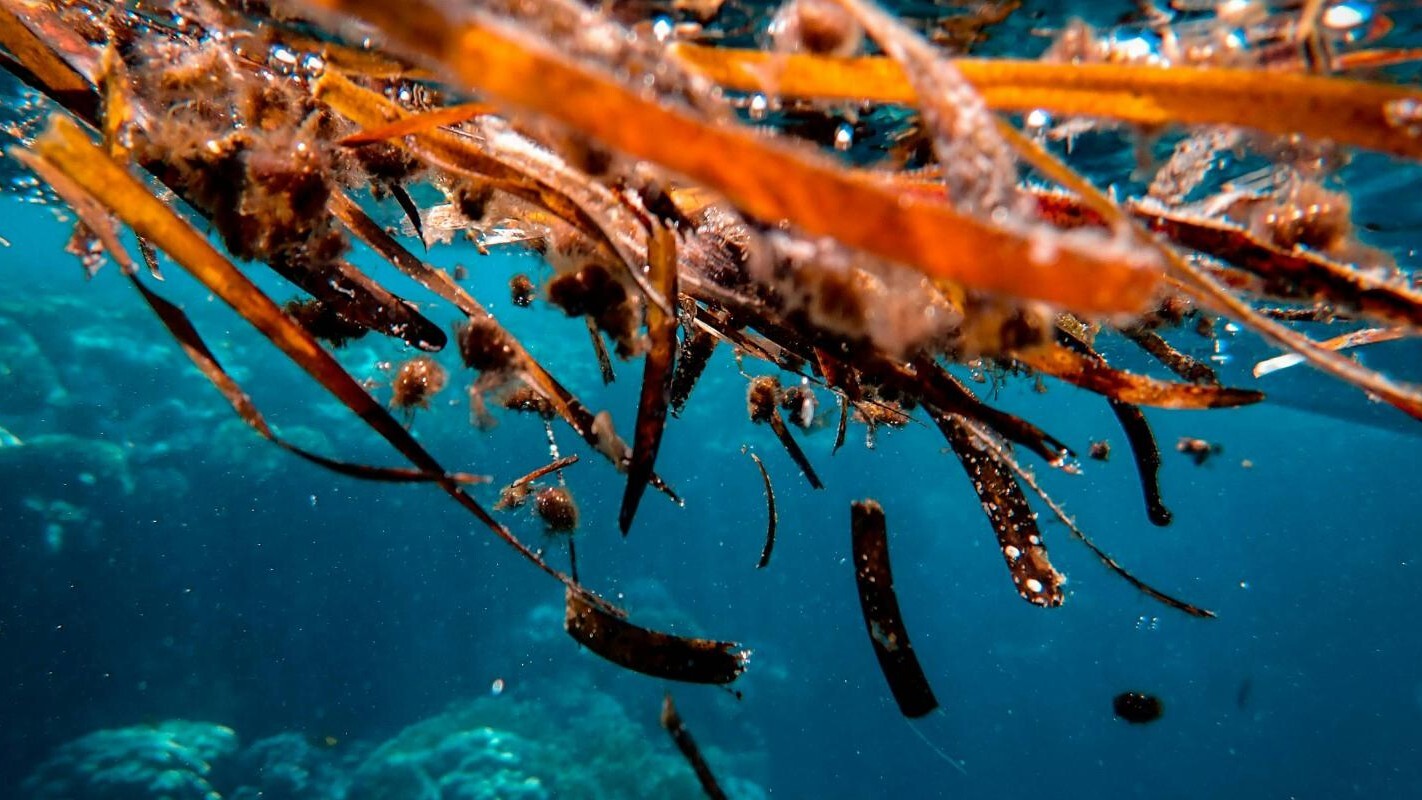The city of Tarifa, one of the points most affected by the invasion of the Asian alga Rugulopteryx okamurae, has faced since 2019 an unprecedented environmental and economic challenge. Faced with this crisis, the Valencian company Poplac Development, located in the UV Science Park, has presented an innovative project to the City Council: the installation of a bioreactor valued at one million euros capable of converting algae into biogas and sustainable fertilizers, significant progress in the application of circular economy technologies to give a second life to natural waste that has so far been considered a problem
The city of Tarifa, one of the points most affected by the invasion of the Asian alga Rugulopteryx okamurae, has faced since 2019 an unprecedented environmental and economic challenge. The accumulation of more than 40,000 tons of this invasive species has led to an annual cost of five million euros in cleaning and has hit hard tourism and fishing, pillars of the local economy.
Faced with this crisis, the Valencian company Poplac Development, located in the business area of the Science Park of the University of Valencia, has presented an innovative project to the City Council: the installation of a million euro bioreactor capable of converting algae into sustainable biogas and fertiliser. The proposal, which has already had an agreement signed with a major energy company, has represented a significant step forward in the application of circular economy technologies to give a second life to natural waste that has so far been considered a problem.
The system designed by Poplac can process up to 15,000 tons of algae per year, generating enough energy to reach a quarter of MW and producing ecological fertilizers for agricultural use. This will reduce methane emissions from the natural decomposition of algae, offering a sustainable alternative to costly landfilling.
"What is interesting about our project is that, when the algae are stranded and untreated, they emit CO₂ and methane freely. By treating them, we reduce these emissions to the atmosphere and obtain a reusable substrate as fertilizer", Alberto Ruiz, Managing Director of Poplac
"What is interesting about our project is that, when the algae are stranded and untreated, they emit CO₂ and methane freely. By treating them, we reduce these emissions to the atmosphere and obtain a reusable substrate as fertilizer", explained Alberto Ruiz, Managing Director of Poplac. Ruiz stressed that this model has already been tested in Mexico with another invasive alga, the sargas, which has reinforced the viability of Tarifa as a pilot enclave to Europe.
The project has been led by Ana Blasco, chemical engineer and CTO of Poplac, who highlighted the pioneering role of the company as "an R & D laboratory specializing in the development of biogas from algae biopolymers". Blasco has highlighted that the chemical treatment developed by Poplac has made it possible to overcome the main challenges of these algae, phenolic compounds, salinity and heavy metals, ensuring a cost-effective and high production process.
A circular economy model with international projection
Beyond local waste management, the Tarifa project aims to become a European benchmark. "In Poplac we have been hybrid, as a center of R&D and at the same time promoter. Our goal is to transform waste into a clean energy source, within a circular economy model that is socially and economically sustainable," added Ruiz.
The resulting fertilizer also has a high rooting capacity in agricultural soils. "This is not new, the posidonia had already been used traditionally in the field for crops, although with risk of salinization. We can achieve a product that is stabilized and suitable for sustainable agriculture," said the manager.
 Photo: Fulls d'enginyeria
Photo: Fulls d'enginyeria
Research and innovation as the driving force of the project
The bioreactor project was not only a response to an environmental emergency, but also a demonstration of Poplac Development’s scientific potential. The PCUV company has consolidated a multidisciplinary team made up of engineers, researchers and biomethanization specialists. In their R&D area, they have developed their own chemical treatment that has made it possible to optimize the use of algae biopolymers, while guaranteeing the technical feasibility, economic sustainability and environmental efficiency of the process.
About Poplac Developement
Poplac Developement is an experimental research and development company in the natural sciences and techniques, engineering technical services and technical advice based at the UV Science Park. The company focuses on sustainable innovation, developing solutions that convert marine waste such as posidonia and sargassum into ecological building materials, biogas, biofertilizers and biochar. Her team, led by chemical engineer Ana Blasco, works in circular economy, combining engineering, biotechnology, materials science and the environment to create disruptive and sustainable products.
Source: Fulls d'enginyeria
Recent Posts


